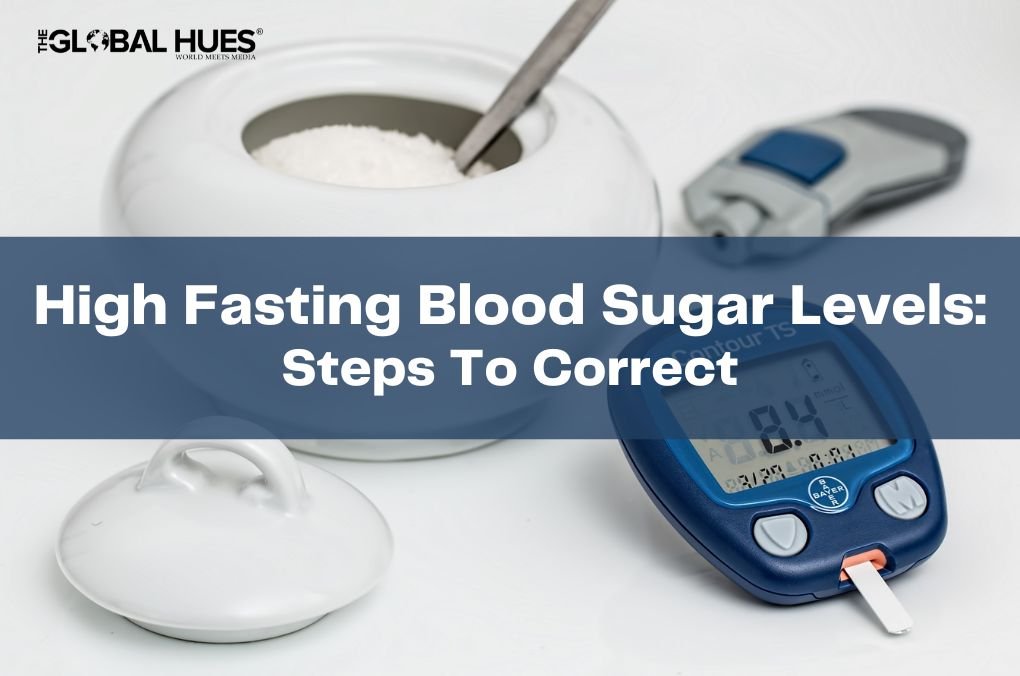Your blood sugar level on an empty stomach is called fasting blood glucose(FBS).
The sugar level in your blood measured on an empty stomach is called fasting blood glucose (FBS).
Ideally, FBS is measured on an empty stomach before breakfast in the morning. Post-digestion of the meals, glucose is released into your bloodstream. It is usually absorbed or stored for energy, but in diabetes, glucose levels remain high.
Thus, high fasting sugar levels can help with the diagnosis of diabetes in a person. For instance, it is considered normal if your fasting sugar level in blood is less than 99 mg/dL(milligrams per deciliter). On the other hand, you are considered to be in the prediabetic stage if your fasting blood sugar level is between 100 and 125 mg/dL. Diabetes is indicated by fasting blood sugar levels above 125 mg/dL.
Post-meal, blood sugar is measured two hours after the first largest meal of the day, preferably lunch. This test tells how your body responds to sugar and starch in the food. In the presence of Insulin, glucose levels in the blood get normal within two hours (below 140mg/dl). Above the normal range indicates diabetes. PPBS helps to understand the control of sugar levels in patients with diabetes.
How do I know if I have high fasting sugar levels?
Increased fast sugar levels indicate that the body cannot lower blood glucose levels. It could be due to insulin resistance or insufficient insulin production. Some people experience the symptoms of high sugar levels in the blood in the early phase. However, for others, symptoms are either minor or unclear; thus, diabetes goes undetected for years. You can better control your diabetes if you know the warning signs and symptoms of high blood sugar, which include
- Frequent urination
- Easy fatigue
- Increased thirst
- Blurred vision
- Frequent headaches
- Trouble concentrating
- Sudden weight loss
- Lethargy
- Weakness
What causes a spike in fasting blood glucose levels
-
The Somogyi Effect
According to this theory, a low sugar level in the blood at night may cause a high fasting blood sugar level in the morning. Taking too much insulin or skipping dinner can lower your sugar levels. The body then produces extra glucose to make up for the drop in blood glucose levels. You consequently have high glucose levels when you wake up.
-
The Dawn Phenomenon
The liver increases glucose production in the early morning hours, which gives you energy and aids in waking up. Additionally, it causes the pancreas to secrete insulin to reduce sugar levels. However, if you have diabetes, your pancreas may be unable to make enough insulin, resulting in high sugar levels in blood.
-
Wrong diet

Monitoring your diet intake plays a significant role in controlling your diabetes. For example, having evening meals rich in sugar and carbohydrates can increase fasting sugar levels.
-
Sleep deprivation
Being sleep-deprived makes you irritable and affects your ability to regulate blood sugar levels. According to research, sleep deprivation, for a single night can impair the body’s ability to utilize insulin. In this state, the cells cannot absorb blood glucose, leaving your blood sugar levels high.
Lifestyle modifications to budge down your high fasting blood glucose
-
Regular exercise
Exercise makes your cells more sensitive to insulin, thus lowering blood sugar spikes. Additionally, muscle cells remove sugar from the bloodstream during activity, which aids in lowering blood sugar levels. For example, one study claims that exercise before breakfast more successfully lowers blood sugar levels than exercise after breakfast.
-
Eating early
High fasting blood glucose levels can result from not having enough time to reduce the amount of sugar in the blood. Giving your body more time to absorb blood sugar levels is a great way to lower blood glucose levels. You can achieve this by eating dinner a few hours early. Low fasting sugar levels give the body enough time to regulate blood sugar levels.
-
Maintaining healthy weight
Due to excess body weight, the body is unable to respond to insulin actively. The effects result in increased fast sugar levels and a higher risk of type 2 diabetes. Research has connected obesity to insulin resistance and an increase in type 2 diabetes, albeit the precise pathways remain uncertain. As a result, keeping a healthy weight can lower the risk of type 2 diabetes.
Dietary steps to regulate high blood glucose levels
If you are diagnosed or at risk of diabetes, the first dietary change is to eat fewer carbs. Breakfast cereals, soda, white rice, candy, bakery edibles, and desserts come under refined carbs. These processed carbohydrates have low nutritional value and high glycemic index, adding to sugar levels in the blood. The most important factor in managing high blood glucose is limiting sugar intake. Sugars in the form of sucrose and those present in high-fructose corn syrup aren’t vital for your dietary intake; they are useless calories. These simple sugars are readily broken down by your body, which causes your blood sugar to rise quickly. According to studies, eating sugar is a significant factor contributing to elevated blood sugar levels. In addition, increase your fibre intake. Fibre aids in lowering the sugar breakdown rate, thus avoiding unexpected blood glucose rises. Add fibre-rich recipes that can help you manage high, fast sugar levels.
Takeaway
Your blood sugar levels remain high in diabetes. If you ignore it, high blood sugar can damage vital organs. Regular blood sugar tests, including fasting blood sugar and post-prandial blood sugar (sugar test 2 hours after meals), can help you track your sugar levels. Both tests have their significance in managing diabetes.
Fasting blood glucose exceeding 100mg/dL is a worrying sign. It means you should become attentive and take proactive steps to stop high sugar levels in your blood. Simple changes to your eating habits and lifestyle can help you avoid spiking of fast sugar levels and live a healthy life in the long run.




